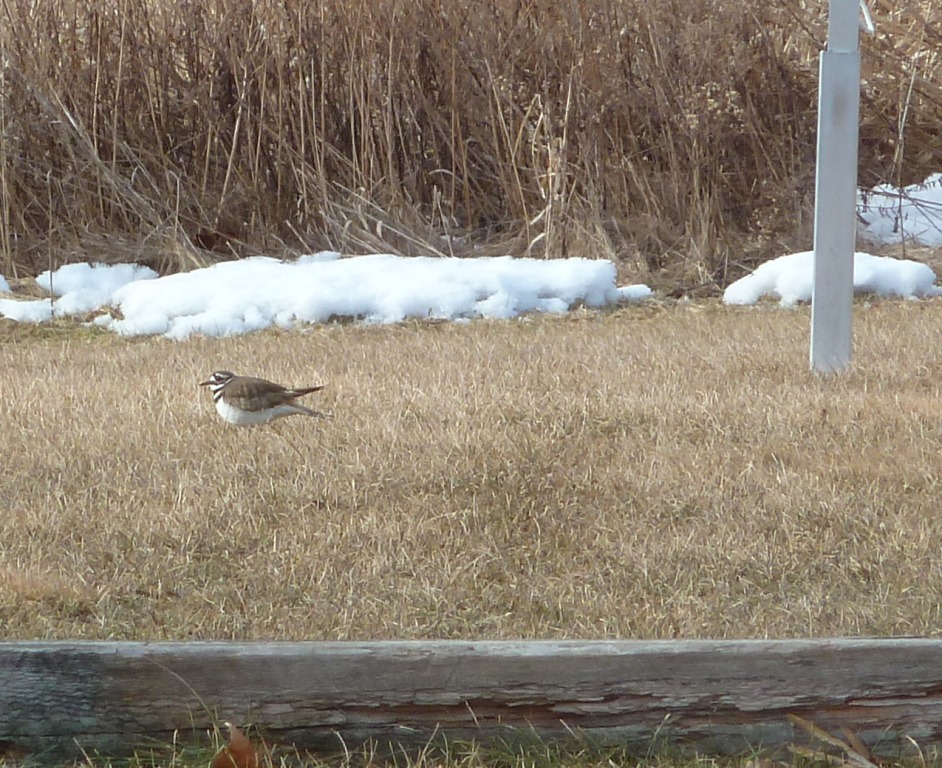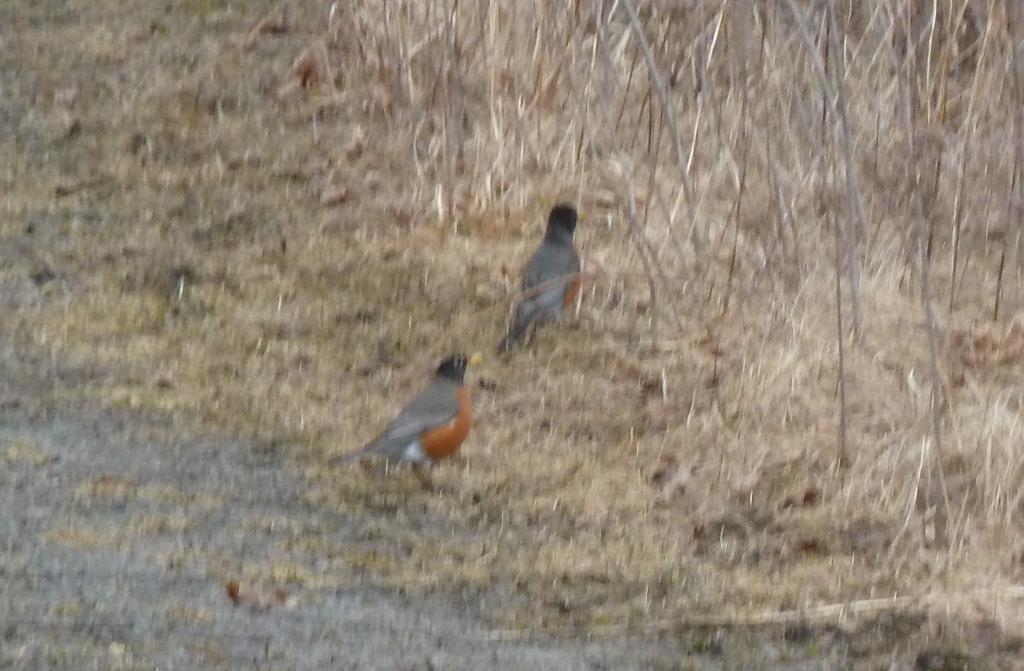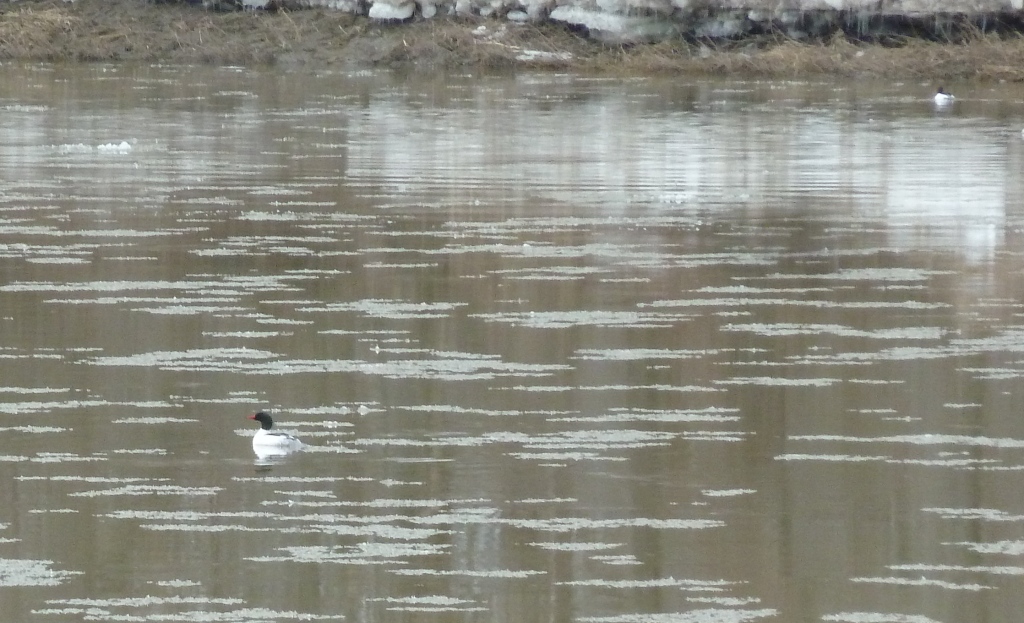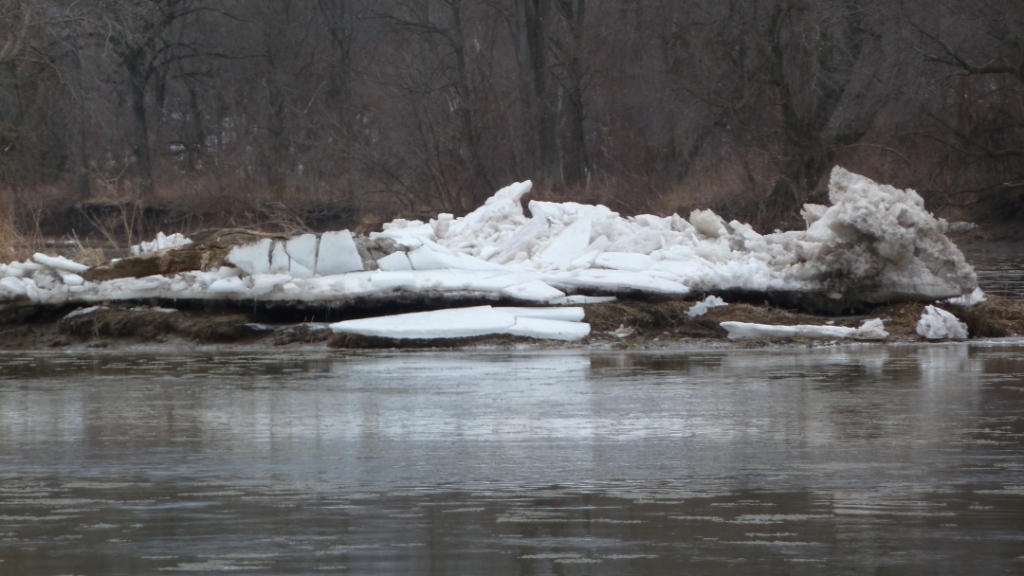
You can’t expect major league baseball players to be in their prime right at the beginning of the season – they have to work into it. And they do this by starting early, practicing basic skills, ensuring equipment is in top shape, and preparing physically for the long grind that they know is coming.
Well, you can think of migration monitoring in similar terms – it’s a long, daily, grind….and there’s no days off for 2 months to rest up. Migration waits for no man (or woman).

So Nancy and I have been getting ready: preparing equipment, from nets and poles to data sheets, talking strategy, going over the myriad things that will need to be taken care of. And today we got down to “physical training” – opened the feeder nets, set out some traps, did a census and started to band. But we didn’t open before dawn or go for 6 hours or eat copious numbers of muffins. We’re just easing into it.
But we did band 16 birds and retrap another 14 in the 3 hours we were open before the rain started. We didn’t get anything out of the ordinary, although it was clear that Song Sparrows had made an appearance – we banded 4. All were carrying good fat loads suggesting that they weren’t “locals’ but were continuing on further north.
We had two interesting retrap American Tree Sparrows. One had been banded as an adult in November of 2012 which would have made it at least 4 years old and then one that was banded in November 2010 as an adult making it at least 6 years old.

The census was interesting with 6 species of ducks including Ring-necked Ducks, which we rarely see on the river. But the highlight for me was a big ‘V’ of 28 birds made up of 20 Tundra Swans (their haunting call is magnificent!) and 8 blue phase Snow Geese intermixed in the arms of the V. It’s the first time that I’ve seen blue phase Snow Geese at Ruthven.

We will start putting up the rest of the nets in the intervening time until April 1st – so if you don’t have anything to do…… News that a Purple Martin was seen at Long Point today lends some urgency to our getting the Martin colony up and functional. And if martins are around Tree Swallows won’t be far behind. Lots to do for sure.
Rick
